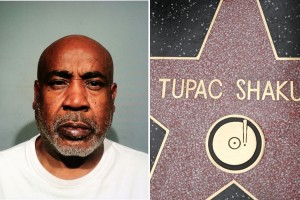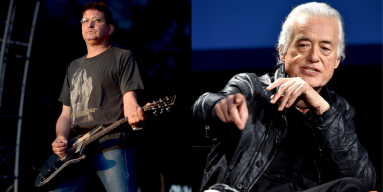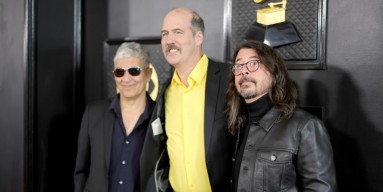
Multi-hyphenate music icon Steve Albini has died. He was 61.
Albini died of a heart attack at Electrical Audio, his Chicago recording studio. His cause of death was confirmed by one of the studio's engineers, Taylor Hales.
Albini was born in Pasadena, California on July 22, 1962. He began playing the bass guitar when he was in high school, but only took lessons for one week. He soon became a massive fan of punk bands like the Ramones and the Sex Pistols, inspiring him to make music of his own. He played in several local bands while he was a teenager.
He earned a bachelor's degree in journalism at Northwestern University's Medill School of Journalism. This skill translated to his becoming a writer for local punk-focused zines like Matter and Forced Exposure.
In 1981, Albini formed his first band, Big Black. The group would go on to release several records, including two studio albums and five singles. He also recorded and engineered his first album while co-managing Ruthless Records, a Chicago-based record label.
After Big Black dissolved in 1987, Albini formed Rapeman. He later regretted the band's name and compared the choice to getting a bad tattoo. The group only lasted a year, breaking up in 1988.
Albini then formed Shellac in 1992. The band remained active until his death. Their next album, To All Trains, is set to release on May 17.
During his career as a musician, Albini became a distinguished audio engineer. He produced albums like the Pixies' Surfer Rosa and the Breeders' Pod. His work on these particular records led Kurt Cobain of Nirvana to tap Albini to engineer their album, In Utero. Albini accepted the job because he felt bad for the band, seeing them as "the same sort of people as all the small-fry bands I deal with."
He would later claim that his work on In Utero made him "unpopular" in the music industry. The initial recording of the album was completed in only six days. However, Nirvana and their label had mixed feelings about the album. Albini refused to re-record anything, leaving R.E.M. producer Scott Litt to finish the mixing. Albini claimed that the final version of In Utero "doesn't sound all that much like the record that was made."
"There was a backlash for sure after the publicity around that record. I was persona non grata with the big record labels, and I had a rough financial year after the release of that record, because my work with artists on those labels all dried up," said Albini to Kerrang! in 2021.
He held several strong opinions on the music industry, often challenging the corporate hold on musicians. In his famous essay, "The Problem with Music," he criticized labels and the industry for misleading and exploiting musicians.
In 2014, he wrote in The Guardian that he was "both satisfied and optimistic about the state of the music scene." He referred to the pre-internet label era as one "riddled with inefficiencies" while praising the independent scene.
He also spoke of his dislike of the term "producer" to describe his work. In 2023, he told The Guardian that he prefers to be known as an engineer as he sees his job as simplying recording the band, not "shap[ing] their sound."
In his lifetime, Albini produced several thousand songs. He bought his own recording studio, Electrical Audio, in 1995, where he worked until his death.














